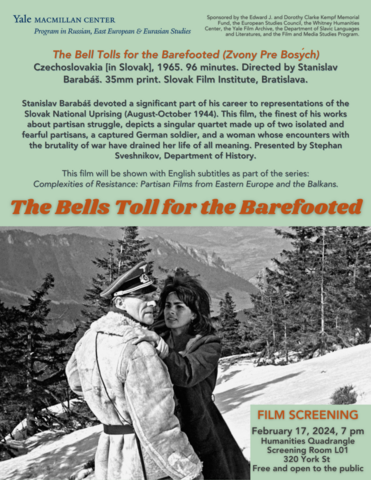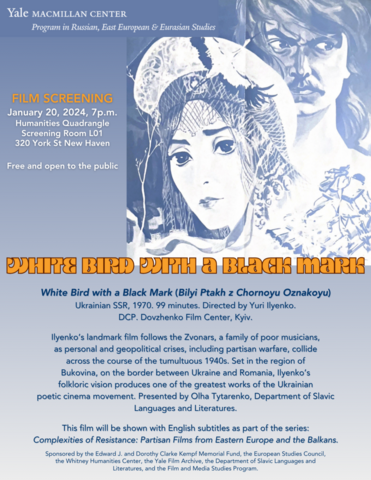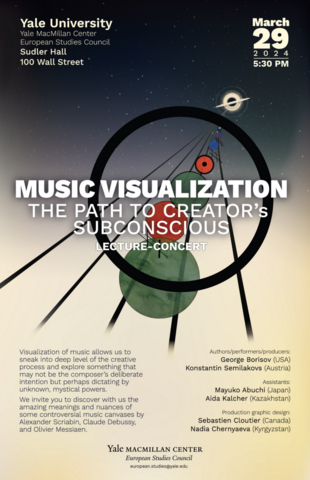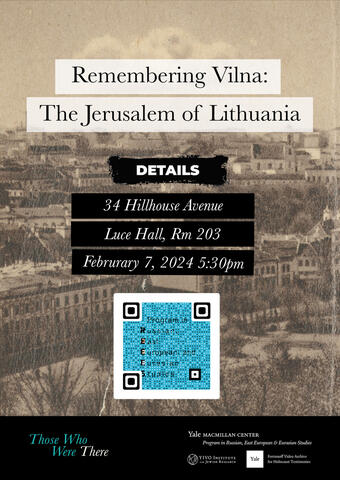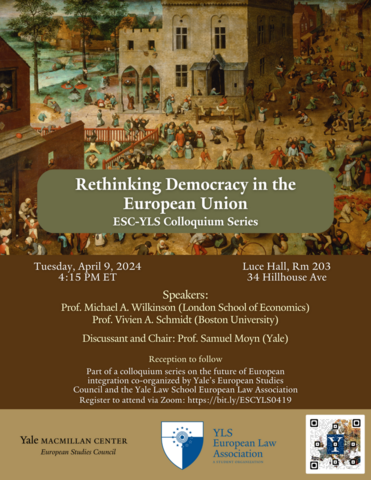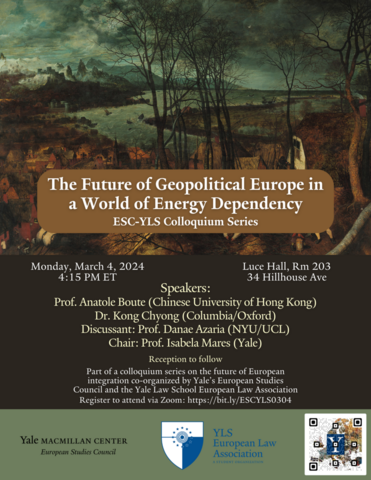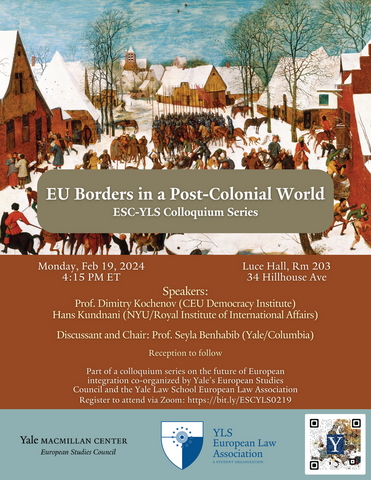Screening of The Bell Tolls for the Barefooted | Complexities of Resistance: Partisan Films from Eastern Europe and the Balkans Film Series
Complexities of Resistance: Partisan Films from Eastern Europe and the Balkans Film Series presents a film screening of THE BELL TOLLS FOR THE BAREFOOTED (Zvony Pre Bosych)
Czechoslovakia [in Slovak], 1965. 96 minutes. 35mm print. Slovak Film Institute, Bratislava.
Directed by Stanislav Barabáš
on Saturday, February 17, 2024, 7:00 p.m.
Humanities Quadrangle, Screening Room L01
320 York Street, New Haven, CT 06511
Free and open to the public | All films will be shown with English subtitles
Stanislav Barabáš devoted a significant part of his career to representations of the Slovak National Uprising (August-October 1944). This film, the finest of his works about partisan struggle, depicts a singular quartet made up of two isolated and fearful partisans, a captured German soldier, and a woman whose encounters with the brutality of war have drained her life of all meaning.
Sponsors:
Edward J. and Dorothy Clarke Kempf Memorial Fund; Russian, East European and Eurasian Studies Program; European Studies Council; Whitney Humanities Center; Yale Film Archive; Department of Slavic Languages and Literatures; and Film and Media Studies Program
About the Film Series: In the aftermath of World War II, several European states started reconstructing and reimagining their identities and recent histories by producing a vast number of films that celebrated and commemorated their guerrilla struggles against fascism. These films ranged in scope and ambition from intimate psychological dramas to overblown military spectacles, from elegiac recollections to pure pulp fiction. Similar to Hollywood westerns, partisan films were the defining genre of the socialist film industry for a significant period. Moreover, in the late 60s and early 70s, both genres reinvented themselves and underwent a political revision that ended their respective “classical periods.” Despite being hugely successful in their domestic markets and often cinematically accomplished, many examples of the partisan films never traveled abroad, and most film prints today remain locked up and in dire need of preservation in various national film archives. Aside from a handful of canonical works, the majority of films we will screen have never been shown in the U.S.


